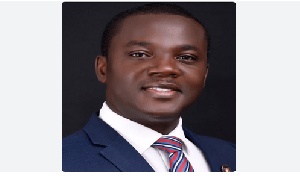- Home - News
- Elections 2024
- News Archive
- Crime & Punishment
- Politics
- Regional
- Editorial
- Health
- Ghanaians Abroad
- Tabloid
- Africa
- Religion
- Photo Archives
- Press Release
General News of Wednesday, 4 June 2025
Source: www.ghanawebbers.com
Withdraw ‘unjust and misguided’ fuel levy hike – Institute of Energy Sustainability to govt
The African Institute of Energy Sustainability (AIES) has urged the government to withdraw the new GHS1 Energy Sector Levy. This levy is often called the “Dumsor Levy.” AIES describes it as an unfair burden on Ghanaians and an ineffective solution to the energy crisis.
Dr. Samiu Kwadwo Nuamah, Executive Director of AIES, signed the statement. The levy adds GHS1 per litre of fuel. It unfairly targets the transportation sector, which uses over 77% of fuel. The levy is framed as a way to address power sector debt.
AIES argues that this approach is misguided. It could worsen living costs for millions of Ghanaians. The new levy will raise total taxes and levies on fuel to 32-33%. This is up from the current 24-25%. Higher pump prices will increase costs across all sectors, including food and transport.
While acknowledging Ghana’s energy sector debt, AIES points out structural inefficiencies as real causes. These include costly contracts, technical losses, unrealistic tariffs, and weak oversight in power procurement. Dr. Nuamah emphasized that taxation cannot solve these underlying issues.
He stated that imposing new levies only treats symptoms without curing the disease. AIES proposed five key reforms:
1. Merge ECG and NEDCo into one distribution utility.
2. Allow private operators to manage retail functions transparently.
3. Empower an Independent Power Administrator for planning and procurement.
4. Accelerate boundary metering and energy accounting.
5. Modernize national power infrastructure with performance-based financing strategies.
Dr. Nuamah urged the government to focus on these reforms instead of “socially inequitable” taxation measures. He concluded that Ghana needs bold leadership and sustainable solutions—not more financial burdens on its citizens.
The Energy Sector Levy (Amendment) Bill, 2025 introduced this GHS1 tax on June 3 in Parliament. It aims to raise GHS5.7 billion annually for energy sector debt repayment and securing fuel for power generation in 2025.











